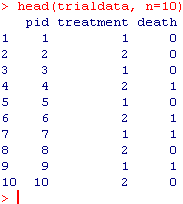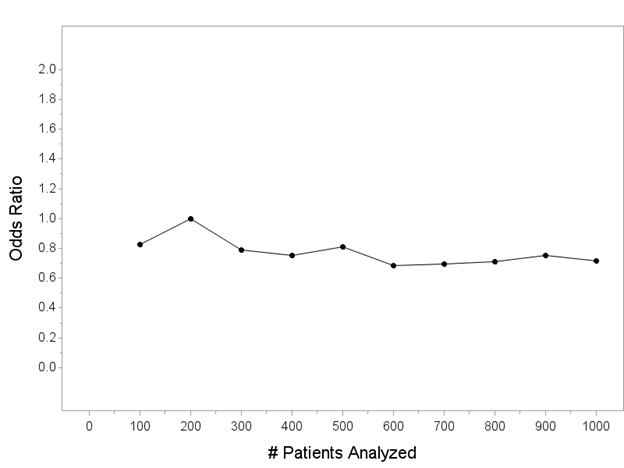
@TartanFB (2004-07); Statistician @Medtronic; statistical methods for clinical trials, kettlebells, deadlifts, pull-ups, food, whiskey & craft beer
4 subscribers
How to get URL link on X (Twitter) App

https://twitter.com/CritCareReviews/status/16240389294721269781. The format is like no other conference I've attended. Instead of 12 concurrent sessions , with a bunch of 10 minute talks that allow 1 question at the end, there's one main stage.
https://twitter.com/mikejohansenmd/status/1547375360471334918@mikejohansenmd (It doesn't invalidate the work, really, it's just odd to see how many researchers don't seem to understand what a "case-control study" actually is)
https://twitter.com/dr_michaelmarks/status/1544998379234758658First, I think it’s important to understand what stratified randomization is meant to do in clinical trials.

https://twitter.com/pritikadasgupta/status/1494738026458718208In our typical RCT's, we expect investigators to choose one variable as the "primary endpoint" to test whether the treatment has a benefit.
https://twitter.com/CritCareReviews/status/1351587953194246146?s=20DISCLAIMER: this is not just a “frequentist” versus “Bayesian” thread. Yes, this trial used a Bayesian statistical approach, but there are frequentist options for interim analyses & adaptive features, and that’s a longer debate for another day.


https://twitter.com/rafaelmourao29/status/1319968783101026307The “TL;DR” summary of the previous lesson(s): yes, an RCT that stops early based on an efficacy threshold will tend to overestimate the treatment effect a bit, but that doesn’t actually mean the “trial is more likely to be a false positive result”


https://twitter.com/rlbarter/status/1288998033321934848I got a Master's degree in Applied Statistics and then a PhD in Epidemiology. The truth is, there wasn't much strategy in the decision - just the opportunities that were there at the time - but Epi seemed like a cool *specific* application of statistics, so on I went
